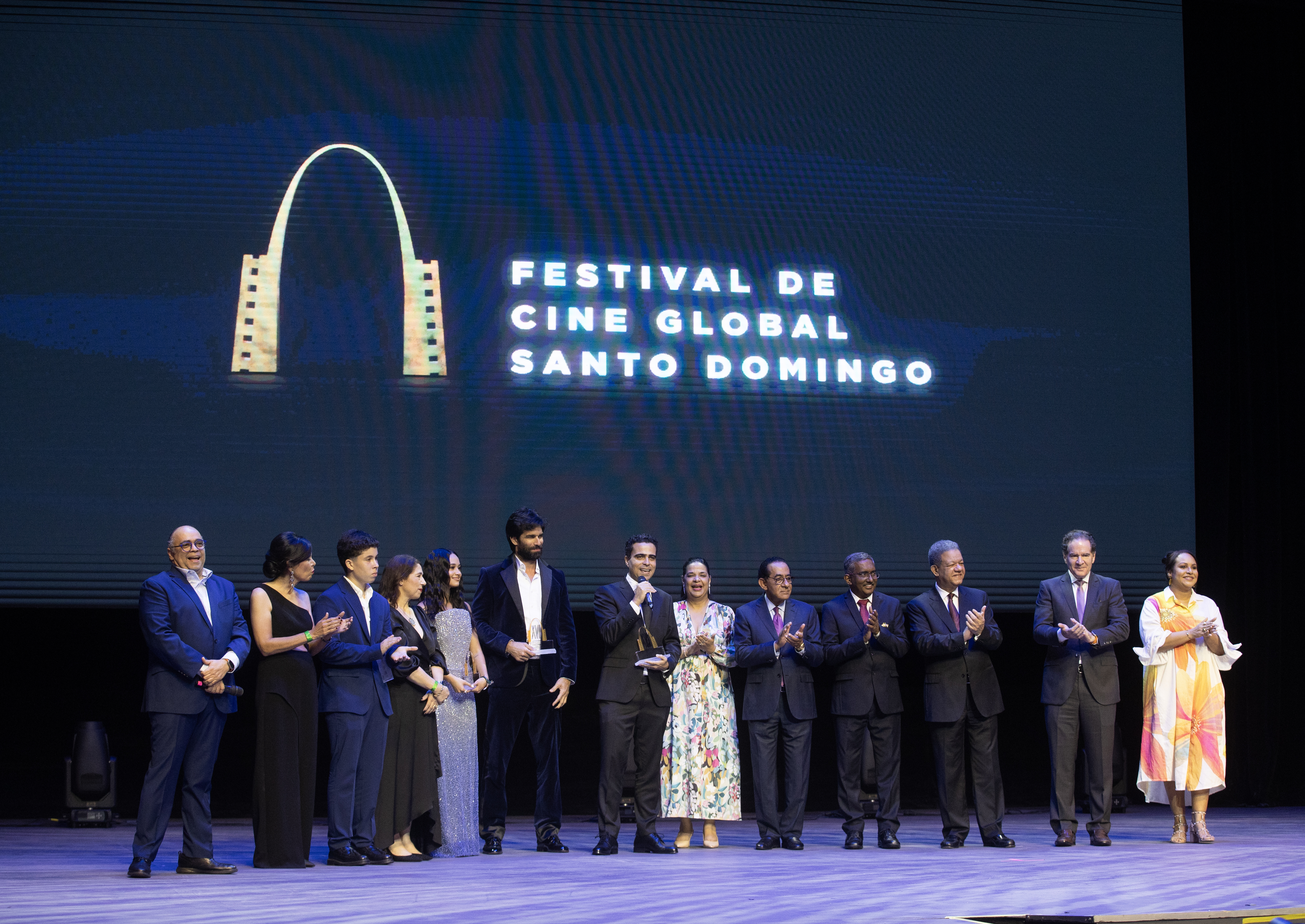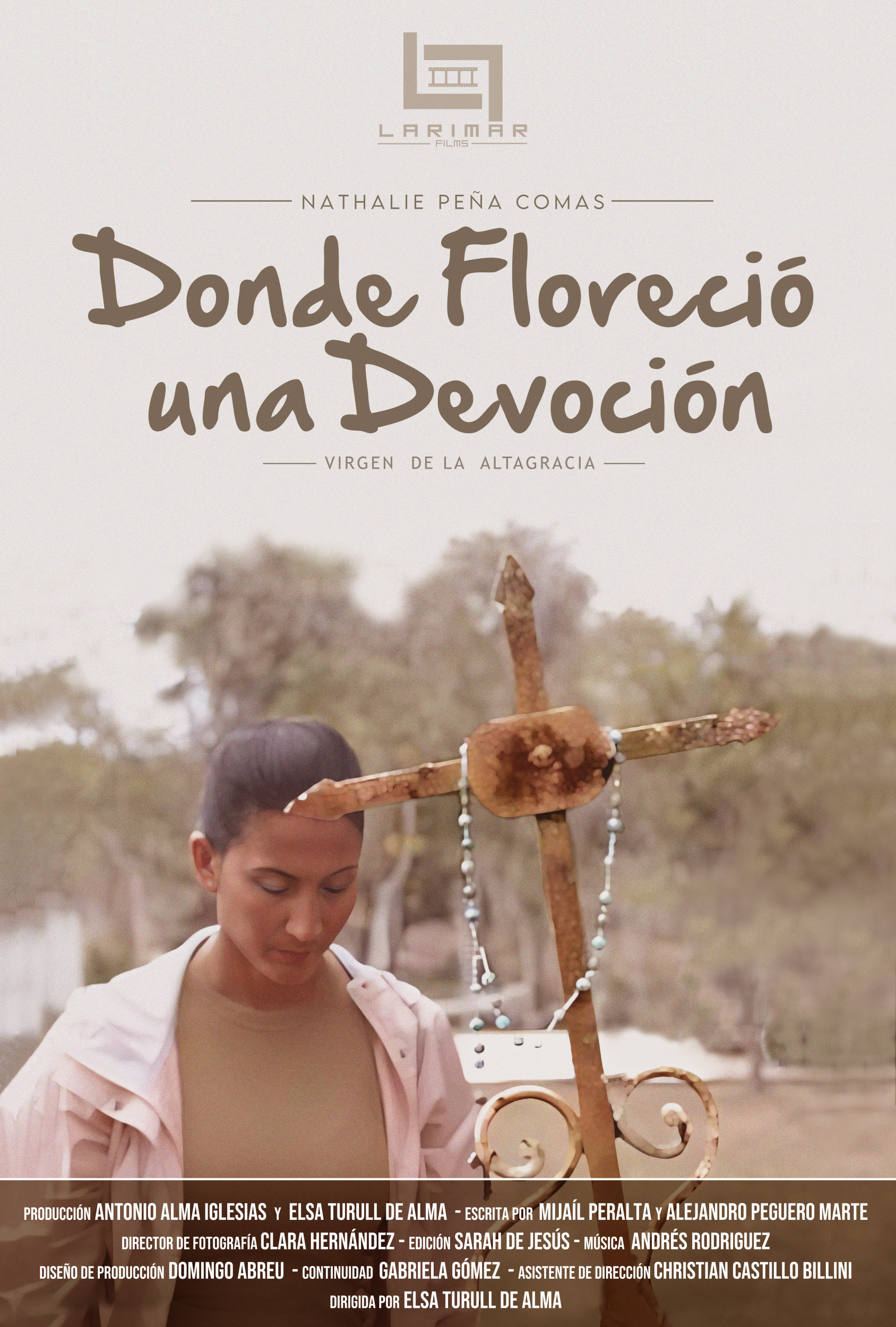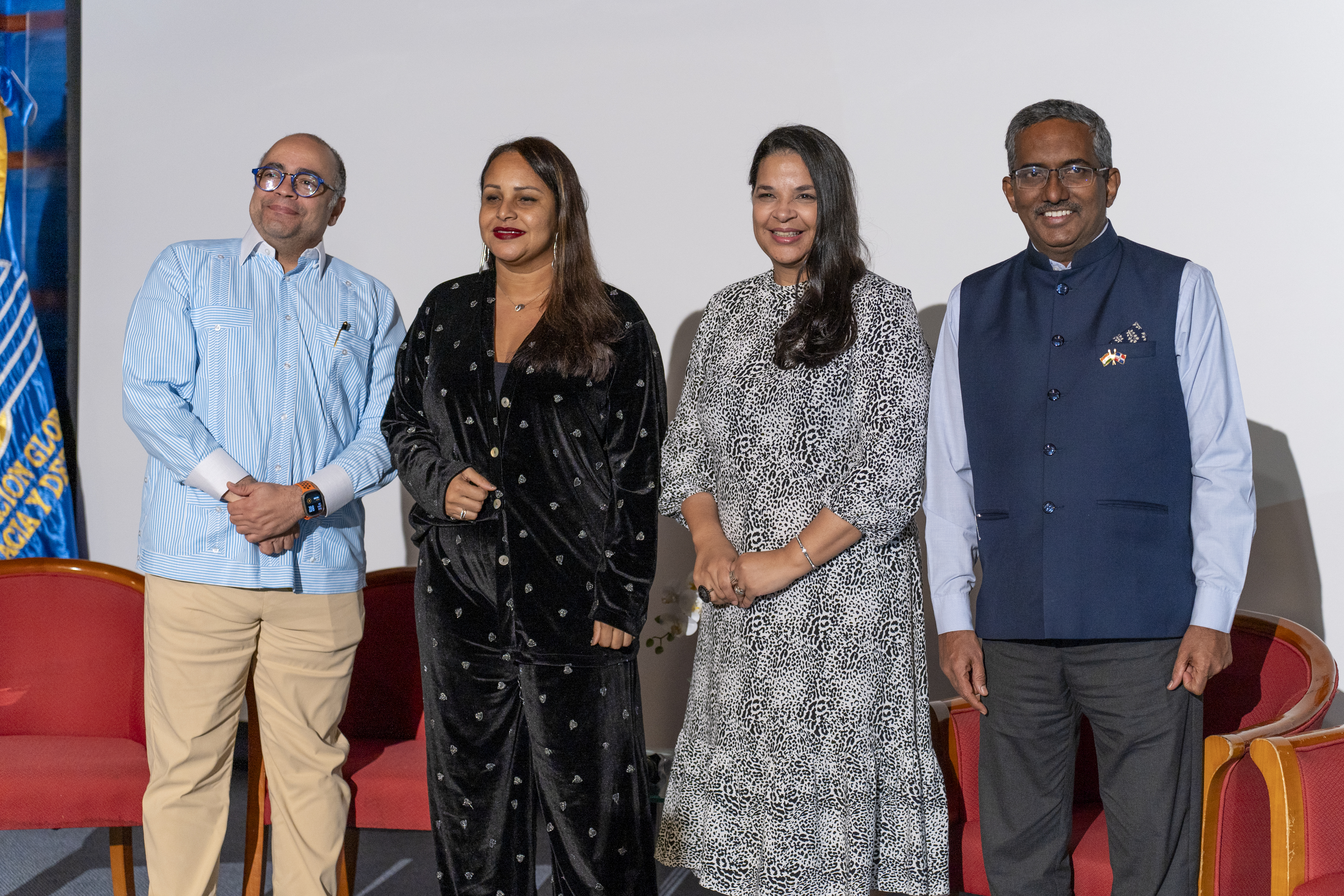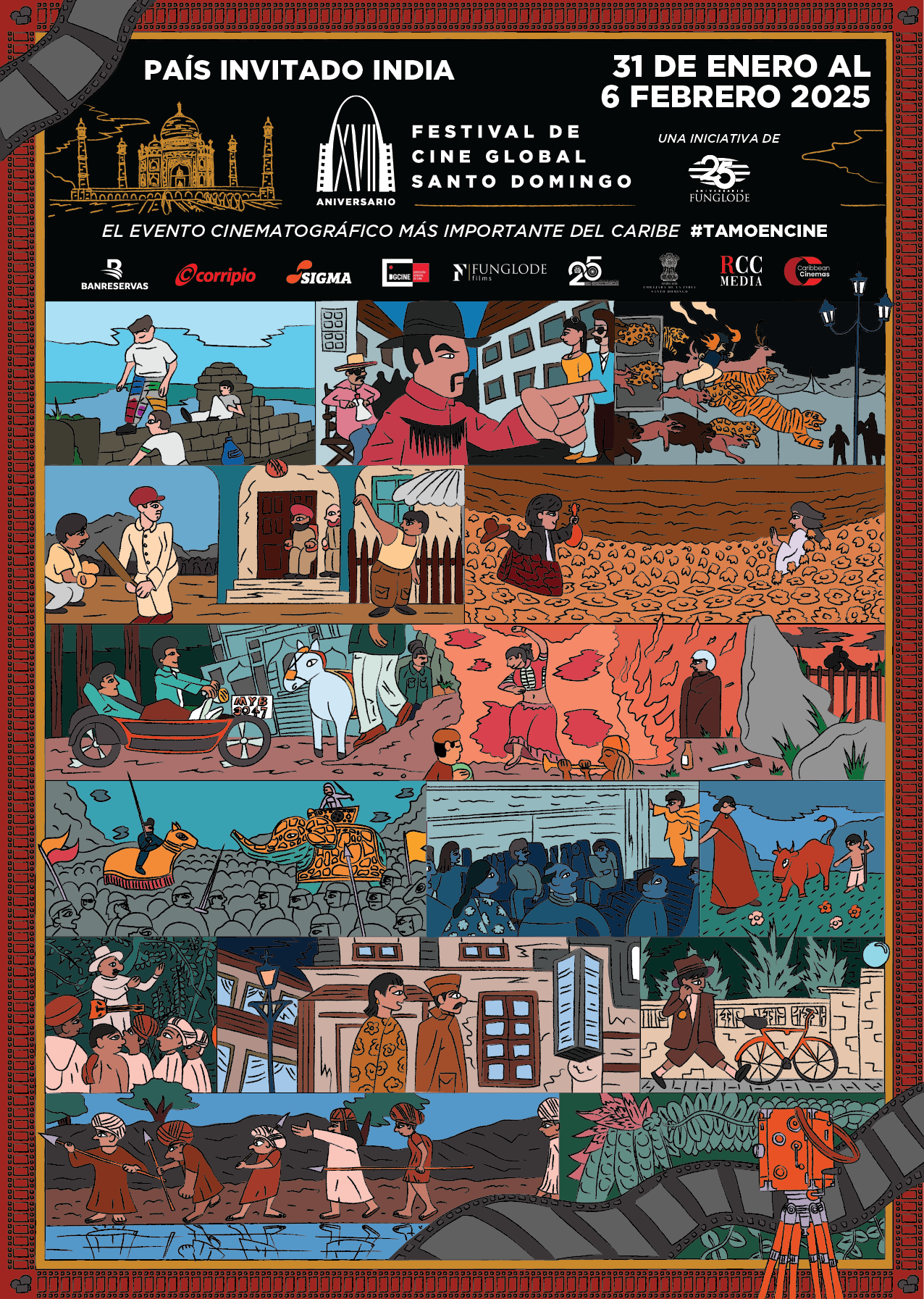Ministry of Education and INAFOCAM Analyze Gender Policies with Dominican Universities
 | Ministry of Education and INAFOCAM Analyze Gender Policies with Dominican Universities The National Institute for Formation and Training of Teachers (INAFOCAM in Spanish) recently participated in two meetings in coordination with the Offices of Gender and Curriculum of the Ministry of Education. The purpose of the meetings was to define policies and strategies that will contribute in the areas of teacher training, the prevention of gender violence in Dominican society and to discuss which courses should form part of the new curriculum being set up under the auspices of the educational authorities. Spanish specialist in the area of training to prevent gender violence, Elena Simón, made a presentation on this problematic social issue. Ms. Simón is a consultant to the Ministry of Education (MINERD). The first meeting was held with members of INAFOCAM and a second meeting was held jointly with representatives of Higher Education Institutions. Both activities were attended by the professionals Esperanza Suero, Director of Gender; Rosa Vanderhorts, Director of Curriculum and Gineida Castillo Díaz, Executive Director of INAFOCAM who was accompanied by Elsa Sánchez, Director of Continuing Education. Spanish specialist in the area of training to prevent gender violence, Elena Simón, made a presentation on this problematic social issue. Ms. Simón is a consultant to the Ministry of Education (MINERD). Esperanza Suero, in opening the meeting with representatives from the universities, said, “The Ministry of Education is concerned about the levels of gender violence going on in Dominican society and the responding calls for this problem to be dealt with from the area of education.” In this sense, Esperanza said that different areas within the Ministry of Education are developing activities directed at preventing gender violence beginning in the schools as well as promoting harmonious relationships in Dominican society. “These actions, in that they are educational, are offering long term solutions and, from the outside, it may not appear that the Ministry is providing a response to the problem of gender violence,” added Ms. Suero, Director of Gender. She indicated that, in the face of the growing problems related to gender violence, MINERD intends to undertake a process of review including updating its educational curriculum. It will also coordinate with the Office of Curriculum and INAFOCAM to take charge of the teacher training aspects by providing adequate and preventative strategies for intervention from the education side of the gender violence issue. For her part, Rosa Vanderhorts, said education authorities are reviewing the Dominican education curriculum to make it more up-to-date and to take into account the actions and innovations carried out within the Dominican Republic since 1995 up until today. “Precisely now that the Dominican education curriculum is under review, it is important that these cross curricular issues remain very strong and at the forefront. Although they were under consideration in past reviews, they were never totally integrated,” she pointed out. “Nevertheless, we want the curriculum to well-fortified now, especially in the area of gender violence prevention.” Ms. Vanderhorts added that it is important to raise awareness of the problem and that, on the university level, actions need to be found and taken in the areas of training, educating and bringing up to date the levels of degrees and post-graduate work which will ultimately orient teachers as to how they should work on gender issues. As such, she asked for support from the various university sectors. In her talk, Gineida Castillo said that for a long time now, the issue of gender needed to be dealt with in the framework of early teacher training at the universities. “The gender perspective should be seen from different areas. Teachers need to be aware and sensitized to this issue because, if not, they cannot pass on information about it to their students.” Elena Simón, Spanish expert in this area, said that over 20 years ago in all developing countries of the world, a false educational approach was developed on this issue. “It was thought that the methodology of cross curricular issues was a done deal but, it turned out, it was never implemented. It was thought, assumed, that teachers on any and all levels including higher education, were motivated and trained specifically to carry out this training. However, this was another miscalculated assumption. As a result of the enthusiasm of the 1990s, in which there seemed to be more equality between men and women, it was thought to be just a question of time, a progressive question and, logically, it would become an educational question.” She suggested that gender equality is learned but that it does not occur spontaneously. “It is like any other curricular material that has to be learned. To learn it, one has to be taught. To teach it, one has to research it. To research it, one has to be documenting,” added Simón. In this order, she proposed placing equality on the curriculum as a motive for learning. “If we want to change what is communicated through gender violence and in femicide as a result of inequality, sexual harassment, rape and prostitution, we should learn about inequality along with the normal academic material in the curriculum.” She said that to advance awareness of gender equality, it is necessary to translate and expose the inequality in the areas of study, research, textbooks and all other material used in teaching. She explained that there has been no interest in teaching about educational equality – taking into account the masculine and feminine reality and converting it into a single human reality. In this sense, she said, “there must be a curriculum with a non-confrontational learning mode in order to achieve the humanity that unites the masculine human being and the feminine human being.” Others who attended the meeting included representatives from the following universities: Technology of Santiago, UTESA, Catholic Technology of Cibao (UCATECI), UNAPEC, Open University for Adults (UAPA), Superior Institute of Agriculture (ISA), Dominican Adventist University (UNAD) and the Autonomous University of Santo Domingo (UASD), among others. |

Related News
-

(Versión en español) Fernando Santos Díaz recibe el reconocimiento Pericles Mejía en el Festival de Cine Global de Santo Domingo
-

(Versión en español) “Donde Floreció una Devoción” se presenta en el Festival de Cine Global de Santo Domingo
-

(Versión en español) Hotel Vista Sol Punta Cana inaugura un innovador mirador en Playa El Cortecito tras una inversión ambiental de USD 3 millones
-

(Versión en español) El Festival de Cine Global de Santo Domingo arriba a su 17va edición
-

Actividad #1
Dónde:: Complejo Acuático Del Centro Olímpico Juan Pablo Duarte.
Días: 28 y 29 de noviembre 2016.
Precios: RD$1,1000.00 VIP, RD$600.00 gradas.




